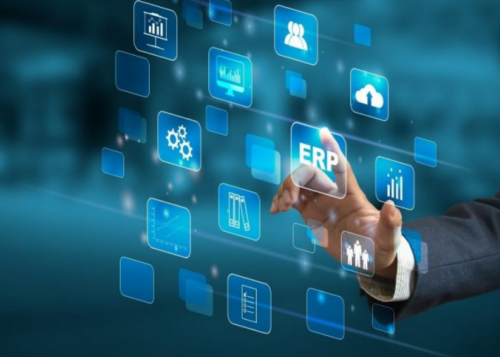ERP Solutions : In the dynamic landscape of modern businesses, ERP solutions have become indispensable, revolutionizing the way organizations operate. Let’s delve into the world of ERP solutions, exploring their evolution, benefits, challenges, and the crucial factors to consider when implementing them.
Evolution of ERP Solutions
Historical Background
ERP solutions trace their roots back to the 1960s when businesses began to realize the need for integrated systems. Over the years, technological advancements have propelled ERP solutions into sophisticated tools that streamline operations and enhance productivity.
Key Components of ERP Solutions
Integration of Business Processes
At the core of ERP solutions lies the seamless integration of various business processes. From finance to human resources, ERP systems create a centralized hub, facilitating smooth communication and data flow between departments.
Benefits of Implementing ERP Solutions
Improved Efficiency
One of the primary advantages of ERP solutions is the significant improvement in operational efficiency. By automating repetitive tasks and providing real-time insights, businesses can make informed decisions swiftly.
Common Challenges in ERP Implementation
Resistance to Change
Despite their benefits, ERP implementations often face resistance from employees accustomed to traditional workflows. Managing this resistance requires effective communication and change management strategies.
Choosing the Right ERP Solution
Assessing Business Needs
Selecting the right ERP solution involves a comprehensive assessment of business needs. Understanding the specific requirements of your organization ensures a tailored implementation that aligns with your goals.
Case Studies
Successful ERP Implementations
Examining successful ERP implementations provides valuable insights. Companies that have seamlessly integrated ERP solutions often attribute their success to meticulous planning, effective training, and strong leadership support.
Future Trends in ERP Solutions
Artificial Intelligence Integration
The future of ERP solutions is intertwined with artificial intelligence. AI integration promises enhanced data analysis, predictive modeling, and proactive decision-making.
Tips for a Smooth ERP Implementation
Comprehensive Training Programs
Smooth ERP implementation hinges on thorough training programs. Ensuring that employees are well-versed in using the new system minimizes disruptions and accelerates the transition.
Industry-Specific ERP Solutions
Healthcare
In the healthcare sector, ERP solutions offer streamlined patient management, efficient supply chain coordination, and enhanced data security.
Security Considerations in ERP Solutions
Data Encryption
Security is paramount in ERP solutions. Implementing robust data encryption measures safeguards sensitive information, mitigating the risk of unauthorized access.
Cost Factors in ERP Implementation
Initial Investment
While the initial investment in ERP implementation can be substantial, organizations must view it as a strategic investment in long-term efficiency and growth.
ERP Solutions and Scalability
Adapting to Business Growth
Scalability is a key consideration. A well-implemented ERP system should adapt seamlessly to the evolving needs of a growing business.
Evaluating the ROI of ERP Solutions
Measuring Tangible and Intangible Benefits
Evaluating the return on investment involves assessing both tangible benefits, such as cost savings, and intangible benefits, like improved customer satisfaction and brand reputation.
Conclusion
In conclusion, ERP solutions are transformative tools that empower businesses to navigate the complexities of the modern market. Embracing ERP technology strategically and addressing challenges proactively positions organizations for sustained success.
FAQs
What is ERP?
ERP, or Enterprise Resource Planning, is a comprehensive software solution that integrates various business processes, facilitating efficient data flow and communication across an organization.
How do ERP solutions enhance efficiency?
ERP solutions automate repetitive tasks, provide real-time insights, and streamline operations, leading to improved efficiency in organizational workflows.
What challenges can arise during ERP implementation?
Challenges may include resistance to change, data migration issues, and the need for comprehensive training to ensure a smooth transition.
Are there industry-specific ERP solutions?
Yes, ERP solutions are tailored to specific industries, such as healthcare, manufacturing, and finance, addressing unique needs and requirements.
How can organizations ensure the security of their ERP systems?
Implementing robust security measures, including data encryption and access control, is crucial to safeguard sensitive information within ERP systems.
